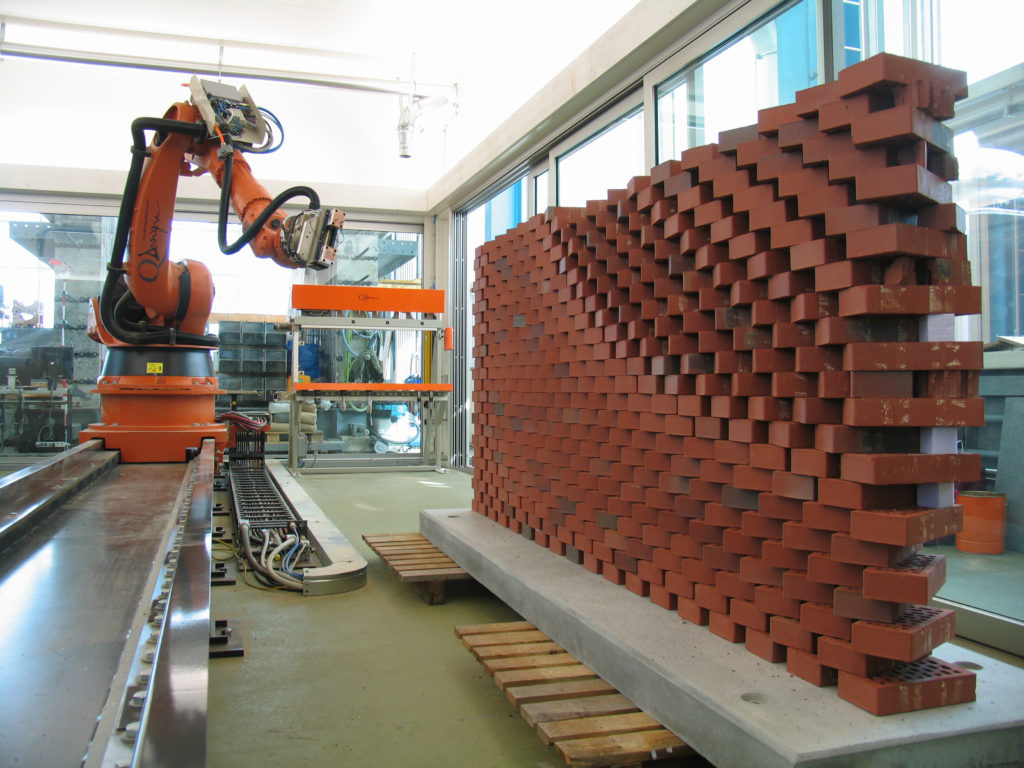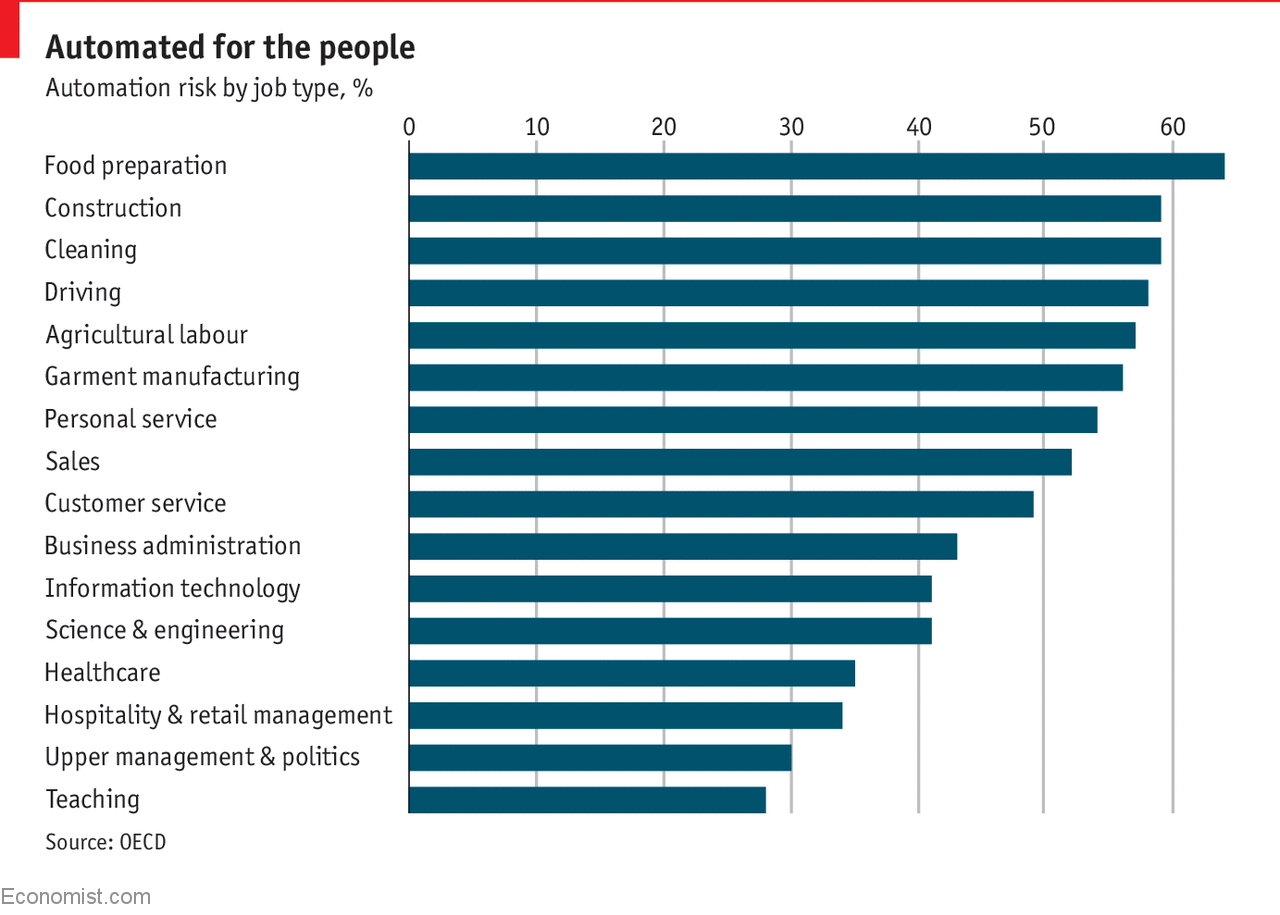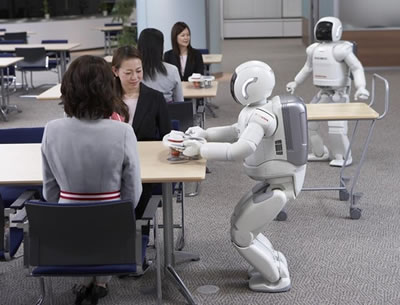
Education is your one hope to be relevant, happy, and prosperous in a world where humans, from ditch digger to doctor, are becoming irrelevant. All jobs have a 30% to 70%+ vulnerability to being ended by software or robotics that can replace you, as The Economist pointed out in 2018.

You will be graduating college right when most of these AI systems will expand, and they absolutely will be something to contend with in your peak employment years. Your parents’ careers, history, and advice largely go out the window, unless they are a business owner or a senior partner or a CEO who can bulletproof your future.
I wrote a piece in 2017 on how robots and artificial intelligence will be replacing the vast majority of us in the workplace, not in some distant, far-off time, but within the next decade.
Not just on factory floors, or in warehouses either. A lot of doctors and a huge number of lawyers will be replaced by artificial intelligence (AI) like IBM’s Watson.
Picture physicians working with a AI and five state-of-the-art robotic surgery systems. A patient is brought in with a condition needing immediate surgery. The AI inputs the MRI and CAT scans, and instant labs, pores over millions of patient records from all over the globe, has not only your blood type but basic DNA traits, and can come up with specific treatment options for the physician in seconds, improving outcomes for the patient dramatically. Will there be doctors in this brave new world? Sure. A lot fewer of them, though, and a ton less diagnosticians, radiologists, etc.
Professions from legal to IT to engineering will all find that a lot of the basic, rote jobs of filling out forms, executing basic practices, etc. will all be replaced by machines that do not sleep, need benefits, fractional partnerships, retirement plans etc.
There are currently 50 million people, largely from middle management and the purge of clerical workers and factory, warehouse workers replaced by computers from 2000 to 2009 so permanently unemployed that they gave up looking. Which sounds depressing, if you just assume that you’re doomed.
You’re not.
There are a LOT of jobs that Artificial Intelligence won’t be able to do at all, or, not at least, for a much much longer time. There are also new careers that will arise in the Age of the Machine where you will be beyond useful, necessary and employable.
The good news is that creative and intuitive people have some of the best survival skills, and that the arts, which parents have long seen as a source of starvation, may be some of the plumb jobs of a world where process-oriented jobs, even good paying ones, are a thing of the past. The other good news is that not every one of them requires you to be outrageously smart, or phenomenal in math or science.
Last year we gave you a list of careers that you could be/do in your life. There are a ton of them! NPR’s Marketplace and the McKinsey Institute have been doing research into robot-proof jobs. Here are a few of the 800 jobs that are essentially robot-resistant or robot-proof:
- Actors, Comedians & Performance Artists
- Ambulance Drivers and Attendants, except Emergency Medical Technicians
- Animal Scientists
- Animal Trainers
- Astronomers
- Athletes and Sports Competitors
- Clergy
- Dancers
- Directors, Religious Activities and Education
- Historians
- Mathematical Technicians
- Models
- Musicians & Composers except Arrangers
You can read and catch the podcast to hear more about their search. We would disagree with them on a few. Mining, for example, will have advanced robots that move into places humans can’t go, where the air is bad or thin or toxic.
We’ve found a lot more, including ones developing around new technologies.
- Advanced AI Programming & Robotic Design – Bet you thought of this one first! If you can’t beat ’em, build ’em. Grey matter technology, neural network programming, robotic design, and other highly advanced work in computers will be the new pathways for people who have been heading into traditional IT. If you think, though, that you can be a run-of-the-mill IT guy who pulls cards, runs cable, and does other basic function, better hit the books. Robots will be taking most of the more rote jobs that service them too!
- Nanotechnology – People with degrees in math, physics, applied engineering, and research medicine are finding their way into the cutting-edge new jobs building atomic-sized robotics to attack cancers in the body, build buildings, or even “print” a car.
- Theoretical Jobs – Theoretical math, physics, astronomy, or any other discipline where advanced thought on the topic is largely conceptual will get assistance from AIs but will remain largely out of their ability to replace the people doing that work.
- Nursing – Skilled nurses who work with patients will be reduced in number, but physically working with patients will always be a need. Count on these jobs’ pay-scales being impacted as robotics takes over the more advanced jobs like nurse practitioners and surgical nursing.
- Psychology/Psychiatry – Millions of technologically unemployed people will grapple with anxiety, depression, dislocation, and, unlike Human Resources, which can easily be automated, dealing with the complex emotions of humans is something AI will be terrible at for a long long time.
- Tourism – Technology is going to lighten up the load for a lot of people who will have more time on their hands. The hospitality industry will lose a lot of jobs to automation, but people taking other people on treks, tours of cities, foodie adventures, etc. will all be very safe.
- Sports/Sports Adventures – Fishing trips, squirrel suit jumping, hiking, river rafting, eco tourism exploration, and any of dozens of other activities that humans do will be largely safe. No one wants to learn how to surf from a robot programmed to do it perfectly. The things that are our imperfections, or appeal to our sense of adventure, will be profitable to people who can guide others.
- Field work – Whether it’s archeology or geology or pharma or zoology or entomology (bugs), most of the advanced field-work in researching the world around us will become more computer aided, but, because AIs and the unknown are not always friends, and forward learning in the great outdoors requires sensory awareness that AIs will lack for a long time, field work in a number of disciplines will continue to be a stable place to find a career.
- Specialty/Niche – If you have a love of electronics, repairing old stuff, from jukeboxes to pinball machines, or collecting of any kind, or book or music curation/resale will all be places to find a paying gig. There won’t be enough profit for a long time to build machines to fix old things that are around for their nostalgia.
- Socialization – This will be where what we now call “teaching” rolls. AI and robotics will move into education. Courses in social behavior, play, at a younger age, and social interaction and psychological awareness, as well as courses teaching humans how to integrate with their mechanical counterparts in a job setting, will be an evolving field.
- Social Media Marketing – People who can act as influencers on the web, bring people to events, new music, products, and services, will be teamed with algorithms but will find plenty of work on the web.
- Internet – The possibilities of what can be created on the Internet to improve the quality of life remain large. Next generation search engines, gaming, entertainment products, shopping and much more have only been touched upon.
What won’t be safe?.
Medicine– Watson is already moving in on the radiology business. The front offices of doctors are being digitized and automated, meaning fewer office staff. Robotic surgery gives one supervising physician the ability to control multiple surgical suites and work better with better patient outcomes. AIs will own diagnostic work, which they’ll be able to do by drawing on huge data pools, taking out a wide array of hospital staff. 80% of the surgeons, clinicians, and specialists whose work is not intuitive enough to beat AI/robotics are likely to be out of work by 2025. Administrators, supervising nursing staff, and other support personnel will be scaled back. Most will try to move into fields of medicine that need people: Pediatrics; geriatrics; obstetrics; psychiatry.Students looking for strictly MD medical jobs who have avoided the computer-free “pre-med” route, and used biology, neuroscience, organic chemistry, AND computer science have the best chances of unseating doctors with more surgical or clinical time, but less exposure to technology.
Law– If you’re one of the handful of trial lawyers, you’re probably safe. If, however, you’re one of the legions of lawyers who does a lot of paperwork, research, drafting of documents, etc., better find a new line of work. 90% of the lawyers, paralegals, and support staff will be replaced by AIs.
Aviation– Boeing is working on pilotless planes, taking the same technology that has been safely piloting drones for more than a decade and putting it to work in commercial aviation cockpits. The current technology already allows aircraft to take off, land and spend long hours flying without a pilot, but this will bring artificial intelligence to a new level. The first tests of pilotless commercial aircraft began in the UK in 2012:
Fast food– Most of it will be automated, with a handful of employees to supervise the system compared to the dozens it takes to run an average McRestaurant. McDonalds is implementing cashier replacements in the wake of $15/hr wage jobs, and soon more robotic kitchen assistants like “flippy” here will be replacing line cooks: Restaurants/Food Service
Restaurants/Food Service
Pharmacy– Robots can count and deliver pills. Even the stocking jobs will end up with them. One pharmacist can operate a dozen or more systems at local pharmacies and hospital pharmacy.
Retail– The human element will be around at retail for a long time, just a lot less of it. Big box stores like Macy’s are scaling down to smaller buildings with samples, and cheaper warehouses that are automated. Amazon just bought Whole Foods Markets and is working on a concept where there will be no checkout lines at all.Just put it in your basket and take it out the front door and you’ve bought it. Millions of cashiers look to lose their jobs.You may get advice from a sales clerk on jewelry or suit or a new blouse, but you’ll scan the tag and it will be delivered to your home within hours. There are robots like Pepper beginning to hit the market, which are a little rough and crude, but, as with all tech, they are the leading edge of much more sophisticated robotics.
Driving– From taxis to trucks, pilotless vehicles (PVs) will be on the scene within the next five years, and own the roads within 10. Uber is going PV, as are the big rental car companies.
Auto Dealers– Gone. Most of the PV cars will be fleet. If you can order up an UBER or HERTZ to go to the market for $8, and a PV Ferrari to take you and your new date to dinner for $32, why would you spend thousands of dollars on a car, and even more on insurance, garaging it, etc.? People will find that the space that their cars took up make for fine bonus rooms.Auto-Related– Mechanics? Far fewer of them. Robotics can be trained to do a number of repair tasks. Most of the cars of the future will be fleet cars that will come into large, automated service centers that need few people to service them. Electric cars like the Tesla have fewer moving parts, also dropping the need for more people who build parts, repair parts, change oil, etc. Even people who work in jobs like parking enforcement will be affected. PV cars keep moving, and are programmed to work with each other. No double parking. No parking on streets. They can wait in nearby garages or parking lots to be called. That also cuts out folks who build signs, parking meters, parking meter software, work in traditional parking facilities, etc.Hospitality– A lot of hospitality jobs, including work at the front desk of a hotel, will be gone, certainly at most “value” hotels, and, as the computing power improves, at four and five star hotels. Who, after all, would mind having a robot valet, or 24 hour full-menu room service, for prices less than they’re paying for a lot less today?.
Physical Labor– Construction jobs will be far fewer. Robotics will do hard physical labor, and a lot of the skilled labor as well. Robotic bricklayers are already in the marketplace…
Robotic assembly will roll 24/7 and not only speed up construction, but create amazing new buildings with complex shapes, and even no seams…
Digital printing is in its infancy, but, if you can see now that a digital printer can build small mechanical parts, how far away are the days of them building or speeding up the building process of complex steel, aluminum, glass and wood (or simulated) construction? A building that used to take months or years to build could go up in weeks.
Wiring, plumbing, and other supporting construction trades will also be impacted.
To be sure, there will be many more new jobs that don’t exist now, many more of them in fields that develop as a result of improved technology. After all, thirty years ago, jobs who knew what an IT Engineer, Nanotechnician, New Media Manager, Data Miner, or a Cloud Computing Specialist did?
Dealing with the major changes in the working world tomorrow requires positioning yourself well NOW, in high school, to put yourself on the path to success. Remember always that the things that make you unique, and aren’t repetitive tasks, or pushing around paper, are the places most likely to remain needed as the workforce becomes more and more mechanical.

Pingback: Oh, the Things You Might Do – More than 1,000 Careers! – High School Musicians' College Advisory
Pingback: Page not found – High School Musicians' College Advisory
Pingback: Oh, The Things You Might DO – 1,000 Careers – High School Musicians' College Advisory
Pingback: The Top 10 Reasons NOT to Choose A College – TaDa!Education
Pingback: The Advantages (and Cautions) About Applying Early or Rolling – TaDa!Education
Pingback: University of California, Berkeley – TaDa!Education
Pingback: List of Colleges and Universities with Capstone Projects (And their value) – TaDa!Education